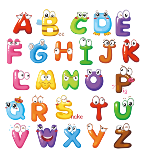Curiosities and Challenges about English Language
Do you like English Language?
Would you like to see more curiosities like these..
The English language has 26 letters that are used to represent 44 sounds in 650 different ways. The letter “S” is the....
All letters of the English alphabet are included in the phrase “The quick brown fox jumps over the lazy dog”. Pangrams..
There are some curiosities about words in English that deserve to be highlighted. The most common letter is the letter....
So.. How about a Challenge on the Best Quiz Platform in the World?
Learning a new language is like unlocking a new world
Get to know a little about everything and bet on your knowledge in incredible challenges and duels..
Join the betspot.zone community, accumulate bts (bets) and even compete for prizes..
Discover some interesting facts about English Language..
grammar Quiz - grammar Curiosities - grammar Challenge - academic Quiz - academic Curiosities - academic Challenge - school Quiz - school Curiosities - school Challenge - - Frequently asked questions about English Language
Dictionary

Dictionary Day is celebrated on October 30th , a day dedicated to celebrating the importance of dictionaries in language, education and communication. This date was chosen in honor of the birth of lexicographer Noah Webster in 1758, who is known for compiling the first dictionary of American English. The celebration aims to recognize the fundamental role that these compendiums play in enriching vocabulary, understanding the language and preserving culture. Dictionaries not only define words, but also provide information on pronunciation, etymology and correct use of language. On this day, schools, libraries and educational institutions usually promote activities, lectures and debates on the importance of language and reading.
celebrate in October 30
publicity
The English language has 26 letters that

The English language has 26 letters that are used to represent 44 sounds in 650 different ways. The letter “S” is the one that most starts words in English. “Strengths” is the word with only one vowel, while “Rhythm” is the longest word without a vowel. The two shortest sentences in English are “Go!” and “I am”. Words like “ewe” (sheep) and “you” (you) have the same pronunciation even though they don't have any letters in common. Likewise, “eye” and “I” are pronounced the same way. The word “set” has the most different meanings, around 450. Finally, “alphabet” is formed by the first two letters of the Greek alphabet: alpha and bēta.
All letters of the English alphabet

All letters of the English alphabet are included in the phrase “The quick brown fox jumps over the lazy dog”. Pangrams or pantograms are words or phrases that contain all the letters of the alphabet of a given language. pan", which means "all", and "grass", which means "letter".
There

There are some curiosities about words in English that deserve to be highlighted. The most common letter is the letter "e", with one in eight letters in English being "e". The "i" sound has seven spellings, and the next sentence contains all of them: "He believed Caesar could see people seizing the seas". Four non-rhyming words are "month", "orange", "silver" and "purple". The word "uncopyrightable" (non-authorial) has 15 letters and all different. "Underground" is the only word that starts and ends with "und". The word "bookkeeper" has three pairs of letters in a row: oo-kk-ee.
publicity
Does the phrase: “Buffalo buffalo Buffalo buffalo buffalo bu

Does the phrase: “Buffalo buffalo Buffalo buffalo buffalo buffalo Buffalo buffalo.” does it make sense in english? Well, it is a grammatically correct sentence and it is a homonymous word, that is, words that have the same pronunciation and/or the same spelling as another, but that have a different meaning. The words called "homophones", have the same pronunciation but differ in the way they are written and in their meaning. A translates: "Buffalo Buffalo, which Buffalo Buffalo intimidate, intimidate Buffalo Buffalo". To better understand the phrase, it will only be possible if you have knowledge of the three meanings of the word “Buffalo”: first: The bison animal; second: The city of Buffalo, in the state of New York; and third: The verb “to buffalo”, “torment (persistently another person)”. Thus, the translated sentence becomes: "Buffalo bison who (other) Buffalo bison torment (in turn also) torment Buffalo bison."
The phrase “The quick brown fox jumps over the lazy dog

The phrase “The quick brown fox jumps over the lazy dog.” (The quick brown fox jumps over the lazy dog) It has all the letters of the English alphabet. These phrases are known as pangramas or pantogramas, and these terms come from the Greek “pan” or “pantós”, which means “all”, and “grama”, which means “letter”.
Did you know that there

Did you know that there is an English word that has no meaning? The word "dord" was coined by a misprint in a dictionary edition that circulated from 1932 to 1940. It has since been known as a ghost word or "ghost word".
publicity
Did you know that there

Did you know that there are an incredible nine ways to pronounce “ough”? The most impressive thing is that they can all be found in a single sentence: “A rough plow, coated with bread, pensively dragged itself through the streets of Scarborough; after falling into the mud, he coughed and sobbed”.
A study by Professor of English Literature Warren King revea

A study by Professor of English Literature Warren King revealed that William Shakespeare created at least 1,700 words to use in his works. However, the terms were adaptations of familiar words in classical literature. Among Shakespeare's contributions to the English language are: majestic (majestic), undress (undress), generous (generous), hurry (hurry), blushing (blushing), torture (torture) and birthplace (birthplace).
Do you know the language addictions? They

Do you know the language addictions? They are those words that can be added to a sentence, but it makes no difference whether they are present or not. For example, "like" in the sentence: “Basically, than like, I’m free”.
publicity
Do you know the blends? Words that join together form one? T

Do you know the blends? Words that join together form one? This is the case of “brunch”, a mixture of “breakfast” (breakfast) and “lunch” (lunch).
The origin of the expression "goodbye" is complex

The origin of the expression "goodbye" is complex, as it was derived from the phrase "God be with you", which means "may God be with you". This phrase was used as a form of farewell by Catholics, who shortened it to "To God be" or "To God I entrust you". The exact translation into Latin languages \u200b\u200bof this word became the word "goodbye". So, when saying "goodbye", today, we are using an expression that has been used for centuries to say goodbye to a person with a message of good luck.
English

English is a West Germanic Indo-European language that originated from the Anglo-Saxon kingdoms of England and spread to southeastern Scotland. With extensive influence from Great Britain and the United Kingdom since the 18th century and from the United States since the mid-20th century, English has become widely dispersed in the world, becoming the lingua franca in many regions. English originated from the fusion of languages and dialects collectively called Old English, brought by Germanic peoples (Anglo-Saxons) to the east coast of Great Britain in the 5th century. The word English derives from the name of the Angles and the ancestral region of Angeln (in Schleswig-Holstein).
publicity
Back
